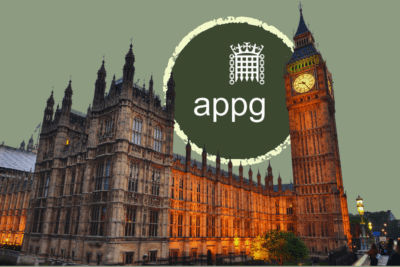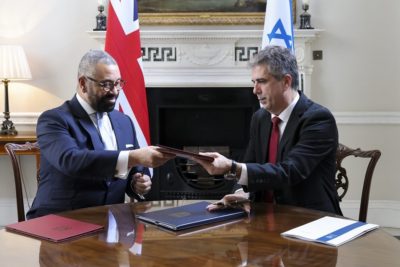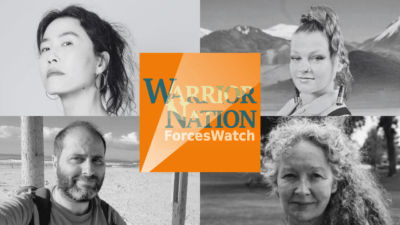Poppy appeal’s original aims being subverted, veterans complain
The Guardian
A group of veterans from conflicts including the Falklands and Northern Ireland have complained of the increasing glitz and glamour of the annual poppy appeal and of it being hijacked to marshall public support behind current campaigns.
Critics say event is drum-roll for current conflicts but Royal British Legion says new approach has raised awareness
A group of veterans from conflicts including the Falklands and Northern Ireland have complained of the increasing glitz and glamour of the annual poppy appeal and of it being hijacked to marshall public support behind current campaigns.
In a letter in tomorrow’s Guardian, the veterans argue that the original aim of the appeal as a sombre commemoration of the war dead and the horrors of conflict was in danger of being lost amid the marketing spin and tub-thumping political aims.
“A day that should be about peace and remembrance is turned into a month-long drum-roll of support for current wars. This year’s campaign has been launched with showbiz hype. The true horror and futility of war is forgotten and ignored,” they write.
The Royal British Legion organises the annual appeal, as well as events such as the festival of remembrance at the Royal Albert Hall and the service at the Cenotaph in Whitehall – this year on Sunday 14 November – and hopes to raise £36m, £2m more than last year. The sum is about half what it spends annually in supporting former servicemen and women.
This year’s appeal was launched by the girl band the Saturdays at Colchester barracks, the Armed Services extreme flight team have held a “jump for heroes” with white parachutes decorated with red poppies and red smoke flares over Essex, and organisers persuaded the X Factor judges to start wearing poppies on the programme weeks ago.
As well as the buttonhole paper poppy, jute poppy bags, poppy jewellery (from £4.99), poppy T-shirts, scarves, caps and ties, cufflinks and tie-slides, not to mention more permanent lapel badges, are also on sale.
For some, it’s all too much. “I am not sure I agree with all that,” said the elderly RAF veteran with his cardboard tray of paper poppies outside a Sainsbury’s in Kent. “It’s a wonderful cause, but it’s all getting a bit – what’s the word? – excessive: a bit wallowing. I wouldn’t like to say so openly though.”
With all last survivors of the first world war now dead – Harry Patch, the last soldier to have served on the Western Front, died aged 111 last year – and veterans of the second world war in their 80s, the legion is using new ways to turn the public’s attention to the casualties of newer conflicts.
Posters this year with the slogan “It only takes a second to put on a poppy” show a serviceman strapping on an artificial leg and a young widow with her baby daughter at the grave of her partner. It is the style and also the apparent politics of supporting our boys in unpopular wars such as Afghanistan and Iraq that has caused complaints.
The veterans’ letter organiser is Ben Griffin, a London ambulance driver who served nine years in the Parachute Regiment, including in Afghanistan and Iraq, before refusing to return for a further term of service because of his concerns about US military tactics.
He said: “We are concerned that people are trying to take ownership of the poppy for political ends. It is almost as if they are trying to garner support for our boys and any criticism of the wars is a betrayal.
“That is not what the poppy was all about to start with: it was all about remembrance and peace: never again. The government should be supporting these casualties: they are their liability, not the British Legion’s.”
Ken Lukowiak, who served in the Falkland Islands and Northern Ireland between 1979 and 1984, and is now an author, is another signatory. He said: “I don’t have a problem with the British Legion, which does wonderful work, but it is the sanitisation which concerns me.
“Part of me wants to be sensitive to the families who have lost loved ones and part of me wants to throw a bucket of blood into the living rooms of the nation every night to show people the true meaning of war.
“This year’s poppy appeal is too showbizzy, too much glamour and glitz. It’s like they are turning on the Christmas lights in Regent Street.”
Robert Lee, the British Legion’s spokesman, is unrepentant. “I am glad that they have noticed the change in campaigning. It’s a fair cop. There have been criticisms, mainly from older veterans.
“We are the national custodians of remembrance but we are living in contemporary society. Not everything we do with the poppy appeal has to be static and serious, or conducted with a frown. It was very generous of the X Factor wearing poppies – that’s caused quite a stir of Twitter, with people asking what they are.
“There is nothing in our appeal or campaigning which supports, or does not support, war: we are totally neutral. We are not a warmongering organisation. We don’t have a position on war in Iraq or anywhere else. These boys don’t send themselves to Iraq – that’s a decision for the politicians.
“We help 160,000 cases a year, servicemen and women and their families. We represent widows at inquests, we fight for compensation for victims who have lost limbs. We are in there, up to our elbows dealing with the cost of conflict.”
The poppy became a symbol of remembrance after the Canadian surgeon John McCrae hurriedly penned his verse In Flanders Fields in the back of a field ambulance at Ypres in May 1915, but it was only after the war that the flower came to symbolise remembrance of the war dead.
McCrae died of pneumonia and meningitis in January 1918 after three years spent patching up the wounded from the trenches. His poem ends: “If ye break faith with us who die, We shall not sleep, though poppies grow in Flanders fields.”
See more: military in society, remembrance,










